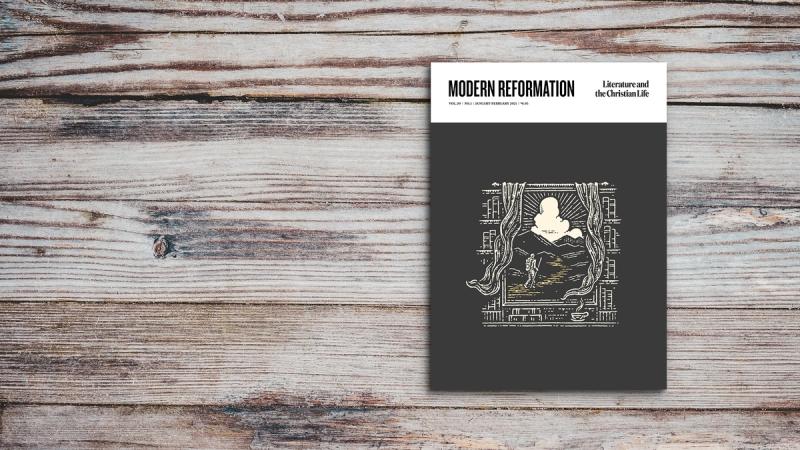(PART ONE OF A FIVE-PART SERIES)
My grandfather was a boxer. He was never good enough to be a professional, but he did a good deal of amateur boxing when he was a young man and always loved “the fights” (as he called boxing matches) throughout his long life. The biggest compliment he ever paid me was when we were walking past two hulking characters on a sidewalk and he said, “You and me—we could take them.” People of my vintage clearly remember the eloquent image of the boxer in the eponymous song by Paul Simon and Art Garfunkel:
In the clearing stands a boxer
And a fighter by his trade
And he carries the reminders
Of every glove that laid him down
Or cut him ’til he cried out
In his anger and his shame
“I am leaving, I am leaving”
But the fighter still remains
True, the world of boxing is about fighting and hitting and moving and knocking opponents down, and for that reason it has to sit uneasily beside the apostle Paul’s exhortation in Romans 12:18, “If it is possible, as far as it depends on you, live at peace with everyone.” Yet among the other New Testament writers, there is someone who doesn’t hesitate to appeal to the image of the boxer. And that is Jude.
We don’t often pay much attention to Jude, largely because Jude’s Epistle is one of the briefest in the New Testament—so brief, in fact, that the translators of the King James Version didn’t even bother to divide his Epistle into chapters for us. That’s not a very good excuse for ignoring him, however, because right at the beginning of his letter, Jude lays out an extraordinarily formidable claim to authority:
Jude, a servant of Jesus Christ and brother of James, to those who have been loved by God the Father and who have been secured for Jesus Christ: May mercy, peace and love be yours in abundance. (vv. 1–2)
This is not quite an autobiography, but there is more here than meets the eye. In Greek, the name is actually Judas. He is the brother of James—the same James who wrote the letter of that name in the New Testament. James is also the biological brother of Jesus himself, and one of the defenders of the decision to expand the preaching of the gospel from Palestine to the larger Gentile world (see Acts 15). This, then, makes Jude either a biological brother, or at least a stepbrother, of Jesus. The early church historian Eusebius of Caesarea noted that in the 90s (at the time of the persecution of Christians under Emperor Domitian) “of the family of the Lord there were still living the grandchildren of Jude.” He is, in fact, the same Jude mentioned as one of four brothers of Jesus in Matthew 13:55 and in Mark 6:3. Since he is mentioned last among those brothers, he was also probably the youngest. There is an appealing hint of humility in this: Jude doesn’t simply barge in with the announcement that everyone must now listen to him because he is Jesus’ brother. Nevertheless, he is someone who really can speak with authority about Jesus, based on personal experience.
That did not guarantee that he would be listened to with respect, then or now. We live in a culture suspicious of authority, since we have seen how much damage can be wrought by people preaching up a superior race, a superior class, or a superior investment opportunity. We tend to identify authority with absolutism, as though authority always involves authoritarianism. Our preeminent virtue today is tolerance—which is all well and good, except that tolerance is only a virtue when it springs from humility (from our awareness of our own personal shortcomings and failures), not when it is the product of indifference, passivity, or confusion.
But before we bewail this as a special failing of our times, it’s worth remembering that authority was a novelty to the people of Jude’s day, too. In practical terms, nobody was more tolerant than the Romans, provided you paid your taxes and kept quiet. The Romans come down to us with a reputation as conquerors, which does not seem especially tolerant. But they were not your usual conquerors. Instead of laying waste to their neighbors’ cities, peoples, and religions, the Romans absorbed them. The cities were expanded with Roman additions (amphitheaters, forums), the people were allowed to go their way undisturbed, and the Romans were at pains to show how the local gods and goddesses were really just local counterparts of the Roman gods and goddesses. By making everything relative, the Romans disarmed any incentive for resistance or troublemaking. The appearance of someone speaking with authority was precisely what the Romans wanted to avoid.
So when Jude proposes to speak with the authority that comes from personal knowledge of Jesus Christ, he has a tremendous cultural disconnect to overcome with the people who are receiving his letter. And he does not concede one inch to it. Once he introduces himself (and lays the basis for speaking with authority), he comes directly to his point:
Beloved, I am writing urgently to you about the salvation we share in common. I’ve found it necessary to ask you to contend strenuously for the faith which has been delivered to all of you as saints. (v. 3)
This is blunt. It is a little like the Marine Corps drill instructor who strides into the barracks, bangs on a trash can to wake up the recruits, and tells them to turn out for PT: “You may have thought the Corps was about comfortable snoozes, but I’m telling you now that it’s time to get up and get out there on the deck and start working out!”
The key word here is contend. In Greek, it’s epagonizesthai, and this is the only time it occurs in the New Testament, probably because it was so startling in its strength. (We can even recognize in that Greek word a bit that has passed into English usage—the word agony.) For the people reading Jude’s letter (or hearing it, since it was most likely read aloud to the people he addresses as beloved), it immediately conjured up the image of a wrestler or prizefighter, or even a gladiator fighting for his life in the public games. It meant straining every muscle until the veins popped out—and not just a fight, but a fight to the finish. Not just agonizesthai, but with the prefix epi, which heightens the stress of the fight. The classical biographer Plutarch used it to describe how Roman General Fabius Maximus defeated Carthaginian General Hannibal, “since he was contending with Hannibal like a clever athlete.”
What Jude then is directing his audience to do, straight from the first, is to get into the ring and box. We often speak of a boxer being a “contender” (just as Marlon Brando in On the Waterfront dreams that he “could have been a contender”). This is what Jude wants them to become—a contender.
Unless you had a grandfather who was a boxer, all this is liable to make you shrink into your seat. We hear contend and immediately think of contentiousness, and that specter is never a pretty one to behold. To contend for the faith that has been delivered to all of you as saints makes us fearful that we’re being told to buckle on the flamethrower and go hose down the non-saints with Holy Spirit fire.
The odd thing is that this is never the way we behave when we talk about sports and want someone else to be the contender. Ensconced in our La-Z-Boys, we want those bunts beaten out, we want those over-the-wall catches, we want those Hail-Mary passes, as evidence that the players are really in earnest. And we howl in indignation when we suspect that someone is only trying half-heartedly. How then can we be a contender (in the sense of giving it our all as Christians) without being contentious?
First, we can do this by knowing what the faith is. The worst way to contend for something is to fail to understand it. If you don’t know how to box, all you’ll be able to do is brawl. Curiously, it’s worth remembering that knowing is itself a form of struggle: it takes patience, humility, and time. Knowledge of what we believe as Christians may not demand the acquisition of a seminary degree, but it certainly requires spending quality time with our Bibles, with good books on the faith, and in conversation with wise Christians. That, to return to the image of the boxer, is the Christian’s roadwork.
Second, we can do this by loving the faith for what it is: the message of salvation. I don’t mean just acknowledging it or treating it as a historical framework, but really loving it as the best story that’s ever been written. Some people read Shakespeare or Jane Austen as though they couldn’t read anything else. But that should be exactly the spirit in which we contend for the faith: by loving the story.
Third, we can do this by practicing it. Contending for the faith does not mean squaring off with someone else, as much as it may mean squaring off with ourselves—by taking ourselves to task for spiritual laxness, for doing what we shouldn’t have done and not doing what we should have, for not loving our neighbor as ourselves. Our greatest opponent in life is always ourselves (something any boxer will be the first to tell you). Proverbs warns us, “Better a patient person than a warrior, one with self-control than one who takes a city” (16:32), because the most contentious people are the ones who exhibit the least self-control, who have contended the least with their own shortcomings.
You cannot hope to persuade others to become servants of Jesus Christ unless you have been first willing to become a servant yourself, in just the same way that you cannot expect to become an athletic contender until you’re willing to undergo the training regimen your sport requires. Remember, in any sport the first lesson to be absorbed is that you are not the athlete you think you are. You might have been the star of the sandlot team in your neighborhood, but the first time you come into the hands of a real coach and a real fastball whizzes past your head, your confident smirk disappears and a genuine miracle occurs: you become ready to learn. You are not simply born a contender; you have to become one, with everything that worthwhile contending implies. And then it will be time to do the work of contending—which, as Jude will explain, is desperately in need of doing.
Allen C. Guelzo (PhD, University of Pennsylvania) is senior research scholar in the Council of the Humanities and director of the Initiative on Politics and Statesmanship in the James Madison Program at Princeton University.






